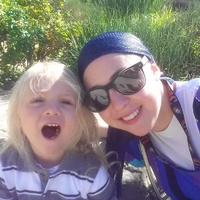
Originally printed in The Jewish Press 2015
“Mommy, can I hate you?" This is what my 3 year old son asked me one morning. Panicky thoughts ran through my head. I have been working on educating my son about feelings, but Oy Vey, did I create a monster? Then, I calmed myself, realizing that feelings are just feelings, and asked, “Why do you want to hate me?" He answered, "I don't like it when you yell at me." I acknowledged that when I yell at him, it makes him upset. I explained to him that when people get mad, sometimes they yell. We discussed how he yells, I yell, or daddy yells. My son countered this saying I should talk nicely. I agreed that talking nicely makes people happy. It was an impressive feat for such a young child to express himself so clearly. Last week was the first time that he acknowledged that he was sad, missing Daddy.
I think it is essential to teach children from a young age how to identify and express their feelings. As a therapist, I come across many adults and children who seem to have no idea what a feeling is, what it “feels like”, what to do with it, or how to express it. They were not taught about emotions and ways to handle them. Adults and children often act out in certain ways and can't figure out the reason for their behavior, without knowing that they have been triggered by an emotion and are acting out on them in a maladaptive manner. If people knew what they were feeling, it would be so much easier to know what to do help themselves get through it. Instead, people often end up avoiding their feelings, don't acknowledge or express them, and act out. I want to give my children the tools to know and express themselves effectively.
"Mommy, can I hate you?" was an intriguing way to talk about such a thing; he was asking my permission. He felt comfortable to ask me this and I was pleased that I was able to not be defensive or get angry that he was having negative feelings towards me. By engaging him in a reflective thoughtful conversation about his question, I was able to validate this emotion.
The ultimate goal of this emotional education is to help him understand that emotions are acceptable and valid, but the behaviors that may come afterward are not. I did not make him feel like he was doing something wrong by wanting tohate me. When you start conveying that a certain emotion is unacceptable, it will just come back to haunt you. Now we had a common language to discuss feelings BEFORE they erupted into actions, and to help him develop the ability to identify them and discern whether he should act on them and how he should act on them.
Young children might not understand everything, but they can often surprise you with how much they are capable of. Treating your child, even baby, as a person with a full range of feelings and desires will help them grow into a confident and self-aware adult, because they will internalize a sense that their feelings and opinions matter.
Obviously, some choices are not for a child to have, and we must teach that certain ways of expressing feelings are off limits-- like hitting. Discussing a plan for the future how to deal with feelings and actions can help a child be more prepared, and feel more safe and secure, even in regard to behaviors that are off limits -- be the feelings are not off limits.

 Previous
Previous
